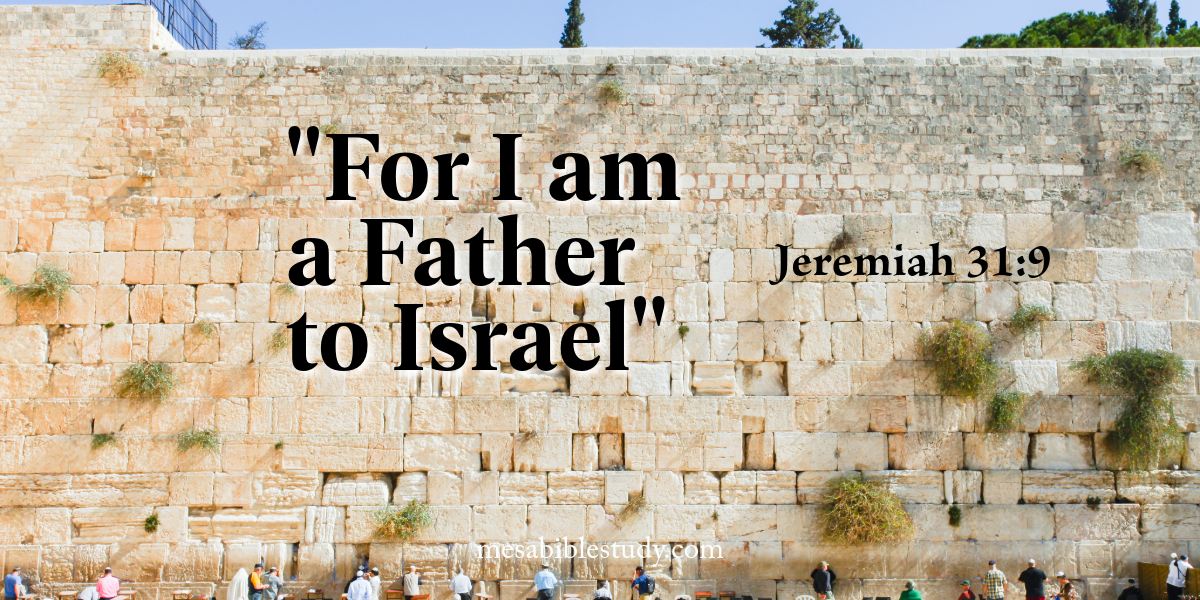📖 Passage Breakdown — Jeremiah 31:9
📜 Background, Setting & Purpose
✍️ Author:
The prophet Jeremiah
👥 Written To:
The nation of Israel—specifically the southern kingdom of Judah—before and during the Babylonian exile.
⏲️ When:
Around 626–586 BC, as Jeremiah prophesied in the years leading up to and during Jerusalem’s destruction.
🌍 Setting & Purpose of Jeremiah:
Jeremiah is known as the “weeping prophet,” proclaiming God’s judgment on Judah for their rebellion and idolatry. Yet woven through his warnings are powerful promises of restoration. Chapter 31 is part of the “Book of Consolation” (Jeremiah 30–33), which focuses on God’s future restoration of Israel, including the promise of a New Covenant (Jeremiah 31:31–34).
In verse 9, we see God’s tender heart toward His people, describing their return with imagery of tears, prayer, guidance, and fatherly compassion.
🔍 Jeremiah 31:9
“They shall come with weeping, and with supplications I will lead them. I will cause them to walk by the rivers of waters, in a straight way in which they shall not stumble; for I am a Father to Israel, and Ephraim is My firstborn.”
✨ Phrase-by-Phrase Breakdown
“They shall come with weeping…”
- Israel’s return is marked by repentance and brokenness.
- Their tears reflect both sorrow over sin and joy at God’s mercy.
- This echoes Zechariah 12:10, when Israel will weep in recognition of the One they pierced.
“…and with supplications I will lead them.”
- God Himself will answer their prayers and lead them in mercy.
- Restoration is not self-achieved but divinely guided.
- Supplication = humble, dependent prayer—a posture of true repentance.
“I will cause them to walk by the rivers of waters…”
- Symbol of refreshment, blessing, and provision (Psalm 23:2, Isaiah 49:10).
- God promises not a dry or barren path, but one filled with life and sustenance.
- It foreshadows millennial blessings when the land will be restored.
“…in a straight way in which they shall not stumble.”
- God will remove obstacles and give them a secure path.
- Unlike their past wandering and stumbling in disobedience, their future will be marked by stability under His care.
“…for I am a Father to Israel…”
- God’s love is covenantal and paternal.
- Israel is not merely a nation but His children.
- His discipline (exile) flows from His fatherly role, but so does His promise of restoration.
“…and Ephraim is My firstborn.”
- Ephraim (representing the northern tribes) is called God’s “firstborn,” emphasizing privilege, inheritance, and covenant blessing.
- Though scattered, God affirms their identity and future restoration.
- This shows the unity of Israel (north and south) in God’s redemptive plan.
❌ What This Passage Does Not Mean
- It does not mean the Church has replaced Israel in these promises.
- It does not mean restoration is merely spiritual—this is about literal, national Israel’s return and blessing.
- It does not suggest Israel earns restoration; it is God’s sovereign work.
✅ What It Does Mean
- God promises to restore Israel with compassion and fatherly love.
- Israel’s return will be marked by repentance, prayer, and divine guidance.
- God will provide for them abundantly, both physically and spiritually.
- Israel’s identity as God’s chosen firstborn remains intact, securing their future place in His plan.
🙏 Devotional Summary
Jeremiah 31:9 is a glimpse into the tender heart of God toward His chosen people. Despite centuries of rebellion, idolatry, and judgment, He declares: “I am a Father to Israel.”
Their return will not be triumphant on their own strength, but humble—marked by weeping and prayer. God Himself will lead them, refresh them, and guide them on a straight path.
This verse is a reminder to us as believers of God’s faithfulness. If He has not cast off Israel, neither will He abandon His Church. His love is covenantal, fatherly, and enduring.
The God who restores Israel is the same God who restores us—leading us with compassion, guiding us with grace, and calling us His children.

0 Comments